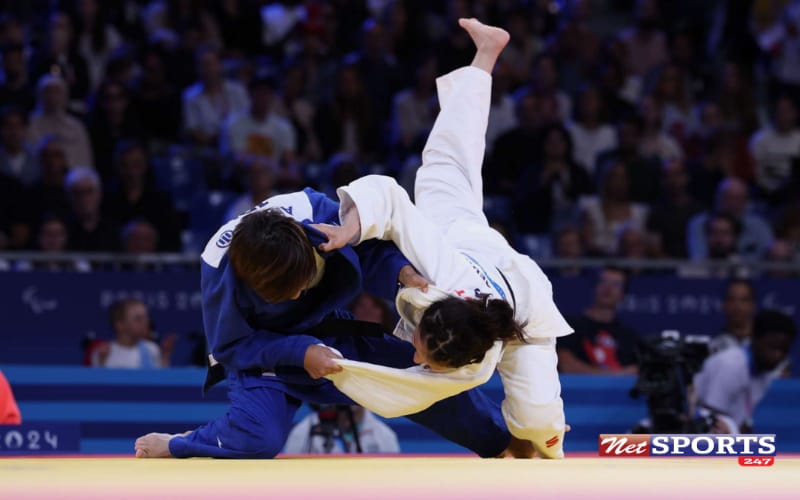Judo is way more than just throwing people around. It’s a martial art with deep history and strict rules.
Whether you’re starting out or want to understand judo rules better, this guide covers everything about judo rules.
What is Judo? A Quick History
Judo started in Japan in 1882. It was developed by a man known as Jigoro Kano. His intention was to come up with a less risky form of the traditional jujitsu. Judao is a Japanese term used to mean in a gentle way.
Kano opened his first school, called the Kodokan. Students wore white uniforms called “gi” and colored belts. The sport spread worldwide quickly. Today, millions practice judo across the globe.
Judo became an Olympic sport in 1964 in Tokyo. Women joined the Olympics in 1992. Now it’s one of the most popular martial arts everywhere.
Basic Rules of the Judo Game
The Playing Area
The matches in Judo are conducted on special mats known as tatami. The field of contest measures 14 meters by 14 meters. There is a smaller contest area within 10×10 meters. The border between these zones is significant in combat.
Match Duration
Regular matches last exactly 4 minutes. If nobody wins in regular time, “Golden Score” starts. This is sudden death overtime with no time limit. First person to score wins immediately.
The Uniform Rules
All judoka (judo players) have a gi. One of the fighters is in white, the other in blue. This assists the referees and the spectators in distinguishing them. The gi should be of the right size- neither loose nor tight.
Belts show your rank. Beginners start with white belts. As you improve, you earn different colored belts. A black belt is the goal for most students.
Judo Scoring System and Points Names
Understanding how points work is super important. Here’s the scoring breakdown:
| Score Name | Points | What It Means | How to Get It |
| Ippon | Match Winner | Perfect technique | Clean throw, 20-second pin, submission |
| Waza-ari | Half Point | Good technique | Partial throw, shorter pin |
| Yuko | No longer used | Small advantage | Removed in 2017 |
| Koka | No longer used | Minor score | Removed in 2009 |
Two waza-ari scores equal one ippon. Once you get ippon, you win instantly.
10 Essential Rules of Judo
Here are the most important rules every beginner should know:
- No striking allowed – You can’t punch, kick, or hit your opponent
- Respect your opponent – Bow before and after every match
- Stay in bounds – Step outside the contest area and the referee stops the match
- No dangerous moves – Certain throws and holds are banned for safety
- Follow referee commands – “Hajime” means start, “Matte” means stop
- Proper gripping only – You can only grab specific parts of the gi
- No stalling – You must actively try to win, not just avoid losing
- Clean techniques count – Sloppy moves don’t score points
- Time limits matter – Use your 4 minutes wisely
- Safety first – Stop immediately if someone gets hurt
Rules of Judo and Skills You Need
Success in judo requires mastering several key areas:
Throwing Techniques (Nage-waza)
These are the most exciting parts of judo. Good throws require perfect timing and balance. You need to break your opponent’s balance first. Then execute your technique cleanly.
Grappling Skills (Katame-waza)
Ground fighting includes pins, chokes, and joint locks. You can win matches without ever throwing someone. Holding an opponent down for 20 seconds wins by ippon.
Movement and Footwork
Great judokas move like dancers. Proper footwork helps you attack and defend. Practice stepping in all directions quickly.
Rules of Judo for Beginners
Starting judo can feel confusing at first.. Here’s what newcomers need to focus on:
Learning to Fall Safely
Your first lessons teach “ukemi” – how to fall without getting hurt. This skill protects you during practice and competition. Master breakfalls before learning throws.
Basic Etiquette
Judo has many traditions. Always bow when entering or leaving the mat. Show respect to your sensei (teacher) and training partners. Never step on someone else’s belt.
Understanding Penalties
Breaking rules results in “shido” penalties. Four shidos equal disqualification. Common penalties include:
- Passivity (not attacking)
- False attacks
- Defensive posture
- Gripping violations
Competition Rules and Leagues
International Judo Federation (IJF)
The IJF controls worldwide judo rules. They update regulations regularly. The latest major changes happened in 2023. New rules for 2025 are already being discussed.
Olympic Rules
Olympic judo follows IJF rules strictly. There are 14 weight categories total. Seven for men, seven for women. Plus one mixed team event.
Youth and Junior Rules
Younger players have modified rules. Matches might be shorter. Some dangerous techniques are banned. Age groups determine which rules apply.
Weight Categories and Divisions
Judo divides competitors by weight for fairness:
Men’s Categories:
- Under 60kg, 66kg, 73kg, 81kg, 90kg, 100kg
- Over 100kg (heavyweight)
Women’s Categories:
- Under 48kg, 52kg, 57kg, 63kg, 70kg, 78kg
- Over 78kg (heavyweight)
Rules of Judo for Dummies: Simple Version
If you’re completely new, remember these basics:
- Throw your opponent cleanly = instant win
- Pin them for 20 seconds = instant win
- Make them submit = instant win
- Score more points in 4 minutes = win
- Don’t hit, don’t stall, don’t be dangerous
Modern Rules of Judo 2025
The rules for the Judo game continue to evolve. Recent changes include:
- Stricter gripping penalties
- New uniform regulations
- Updated referee signals
- Modified competition formats
The IJF reviews rules every Olympic cycle. They want to make judo more exciting for spectators while keeping it safe for athletes.
Safety Rules and Regulations
Safety comes first in judo. Referees stop matches immediately for injuries. Medical staff check hurt players carefully. Dangerous techniques result in instant disqualification.
All clubs must have qualified instructors. Equipment gets inspected regularly. Emergency procedures are practiced often.
Training Rules and Etiquette
Proper dojo (training hall) behavior is crucial:
- Remove shoes before entering
- Keep your gi clean and in good repair
- Listen to your instructor always
- Help newer students learn
- Clean the mats after practice
Conclusion
Judo rules might seem complicated at first. But they make the sport fair and safe for everyone. Start with the basics and build your knowledge slowly.
Do not forget that there are rules to guard you and make the competition fair. Great judokas have great respect for the rules and their opponents as well.
You are going to perform training either to have fun or to win Olympic medals, knowing these rules can help you achieve it.
Judo is beautiful in that it is a skill of physical art and a discipline of the mind. Know the regulations, follow the customs, and have fun with this wonderful martial art.
The first steps of your judo career begin with the knowledge of – and adherence to – these valuable principles.


















